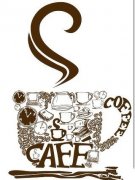Coffee training Culture the Coffee feelings of the Sudanese
It is no stranger to people to mention coffee. However, if you enter Africa and enter the country of Sudan, you will gradually find that there is an inextricable bond between Sudanese and coffee.

Sudan is located in northeast Africa, with an area of about 2.5 million square kilometers, is the largest country in Africa, with a population of more than 25 million. Arabic is the official language of Sudan and English is widely used. Most people believe in Islam. Because of the need of work, we are fortunate to step into this ancient and mysterious land. In our work and life, we gradually find that Sudanese especially like to drink coffee, from dignitaries to civilian cloth clothes. Wherever you go, wherever people live or by the side of the road, there is always a stall set up by local women to prepare coffee for people. The three or five stalls are connected together to form a beautiful scenery. Dressed in colorful clothes, they look very bright from afar. When he approached, he was dignified, generous and enthusiastic, and he seemed to have a shy and shy look in conversation with him, and he felt more and more agreeable. The commonplace coffee stands are actually part of the working life of the Sudanese people.
We Chinese like drinking and drinking tea. We are not very interested in coffee. We only taste it occasionally, either coffee with sugar or coffee with milk. However, this is not the case in Sudan, where there are several small wooden stools in front of a coffee stand. There are two kinds of these small wooden stools, one is rope woven stool surface, the legs of the stool are wooden, although it looks very simple and primitive, it is very comfortable after sitting. The other is the wooden stool surface, rough, a little simple taste, is used to put the cup, more stable. Sudanese women put a pot of water on a simple charcoal stove in advance. When they need to make coffee, they first pour the water from the pot into a part of an aluminum can with a handle, put the aluminum can on the stove and continue to heat it. When the water temperature is about 80 degrees Celsius, first add a small amount of powdered ginger, slowly stir it well, then put in the right amount of coffee, and continue to stir. When the coffee foams, the heat will arrive. At this time, pour the brewed coffee into a cup with sugar added in advance through a filter, then walk up to you with a plate, hand the cup to your hand, and give you a smile, which is very sweet and beautiful.
Don't worry about drinking coffee in Sudan, just like tasting tea, first take a sip, make two bends in your mouth and stay for tens of seconds, a sweet and spicy feeling permeates your taste and makes you feel refreshed. When you take a second sip, you will feel a surge of heat in your stomach and intestines, which makes you feel like a good medicine for your soul. When drinking again, its fragrance and spicy taste are stronger, which is really refreshing and wonderful. No wonder the Sudanese often say that drinking coffee relieves fatigue and grows energy.
Sudanese coffee has two major characteristics, one is powdered ginger, which makes its taste unique, and the other is that the coffee is processed and made by the local people. First stir-fry the coffee beans, stir-fry until charred, crisp and fragrant, then mash them into powder. Every time I see Sudanese women making coffee powder in a primitive way, it often reminds me of the situation when people in my hometown cooked rice when I was a child. A sense of intimacy arises spontaneously, and a strong local flavor flashes in my mind. This is not in Sudan, it is clearly back to the hometown of the countryside.
The Sudanese drink coffee much more slowly than we do, even when we have finished a meal and the Sudanese have not finished a cup of coffee, they look and behave like an old-fashioned English gentleman. On the other hand, we are different. some of our companions are so impatient that they drink up in two mouthfuls. Drinking coffee in Sudan requires patience, without patience, you will not be able to taste the taste of Sudanese coffee, and it will be very difficult for you to be familiar with the customs of the Sudanese, and it will be difficult for you to understand the inner world of the Sudanese, let alone feel the feelings of the Sudanese.
I am afraid it is difficult to prove when the Sudanese started drinking coffee, just like the Chinese drinking tea, it should have a long history. Coffee nourishes Sudanese culture, and coffee contains Sudanese joy, anger, sadness, joy, sadness and thought. Coffee brings comfort, sweetness, leisure and serenity to the Sudanese. Coffee represents the strong flavor of life of the Sudanese, and coffee also gives the nation its unique way of life, way of work and unique emotional world.
Sometimes, because of the tiredness of work, we also envy the coffee culture of the Sudanese. If you can do this often in life, isn't it also very happy and cozy?
Important Notice :
前街咖啡 FrontStreet Coffee has moved to new addredd:
FrontStreet Coffee Address: 315,Donghua East Road,GuangZhou
Tel:020 38364473
- Prev

Coffee training Culture atmosphere of French Fine Coffee Culture
I have heard that France once drank less coffee because of a shortage of coffee, and immediately saw more people taking a nap. It may seem like an exaggeration, but it is true that the French are addicted to coffee. When the Gulf War broke out in 1991, France was also one of the countries participating in the war. some ordinary people in China worried that the war would affect the supply of daily necessities and rushed to supermarkets to buy them. Even the TV station was alarmed when the camera was in front of it.
- Next

General knowledge of Fine Coffee Culture Coffee Culture in Vienna
Coffee is something that Viennese enjoy talking about and are quite proud of. The Viennese even compare it with music and waltz, which is called the three treasures of Vienna, which shows the relationship between Viennese and coffee. Some people say that Vienna is a five-step coffee, which may be an exaggeration by the poet, but it is true that there are a large number of Vienna cafes. Coffee kiosks for people to drink standing up from street corners,
Related
- How did the Salvadoran coffee industry develop in Central America?
- What exactly does the golden cup extraction of coffee mean?
- The Origin of Coffee flower
- [2023 Starbucks World Earth Day] there are more meaningful things besides free Starbucks coffee!
- What kind of coffee is there in Spain? 9 Flavors of Spanish Coffee
- Aromatic African coffee| Kenya's coffee culture and historical production area
- Liberica Coffee Bean knowledge: the characteristics of Liberian Coffee beans of the three original species of Coffee beans
- The origin and formula of Spanish latte introduces the taste characteristics of Bombon coffee in Valencia, Spain.
- How to adjust the solution of over-extracted coffee
- What is the tasting period of coffee beans? What is the period of coffee and beans? How should coffee wake up and raise beans?

